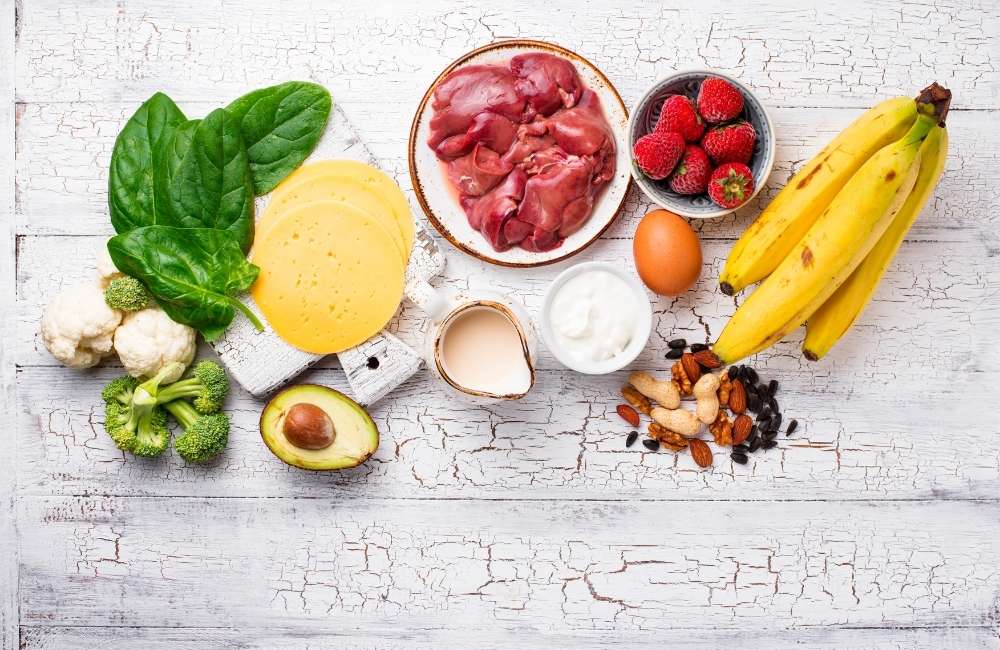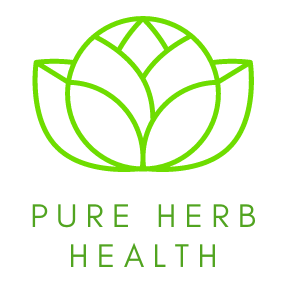Vitamins are important for the body to function properly. Hello friends! I have had this leading in my spirit for a long to discuss the above topic. This is very important at a time like this when the world is really in the fast lane; what do I mean by this?
Everyone wants everything fast: fast food, fast health recovery, fast internet, fast access to places etc. And in terms of the food, we eat (our focus for this write-up). Fast foods can never supply your body with the most needed nutrients that you can beat your chest and say you ate a balanced diet.
Honestly, no matter how you view it, you will agree with me that most of us do not eat a balanced diet, the typical western diet is low in several very important nutrients, except conscious efforts are made to balance our diets which is almost impossible due to time constraint, availability of required food, limited finances etc.
We need these vitamins and minerals to keep our bodies healthy and when we are not meeting up with our body’s needs, the body naturally reacts by exhibiting some symptoms/signs that most times we don’t even know it is due to the lack or deficiency of vitamins and minerals.
The good news is that once the necessary steps are taken to reverse the deficiency, these symptoms improve drastically or are completely clear. It is usually said that knowledge is power!
I want to empower you now to be able to identify these signs/symptoms of vitamins and minerals deficiency in the body and how to reverse them through supplements and also naturally by eating fruits and vegetables rightly. Let us have a look at some of these vitamins and minerals.
Vitamin A
Vitamin A is mostly considered a singular nutrient but through scientific research, it has been discovered to be a group of fat-soluble compounds comprising retinol, retinal, and retinyl esters. The body converts these forms of vitamin A to retinal and retinoic acid (the active forms of vitamin A).
As vitamin A is fat soluble, it then means that it is stored in body tissue for later use. Most of the vitamin A in the body is stored in the liver in form of retinyl esters and from here it undergoes a biochemical process before it is made available in the bloodstream for the body to use.
Sources of Vitamin A
Vitamin A occurs exclusively in animal products like dairy, liver and fish as preformed vitamin A (retinol and retinyl esters) and as pro-vitamin A carotenoids(abundant in plant foods like fruits, vegetables and oils.)
Health Benefits of Vitamin A
Vitamin A supports cell growth, immune function, fetal development, and reproductive health, is widely used for vision and eye health protects against certain cancers etc. Vitamin A also plays a role as an antioxidant.
Signs of Vitamin A Deficiency
Vitamin A deficiency is common in developing countries because of limited access to food sources of vitamin A. Pregnant women, breastfeeding mothers, infants and children are at the highest risk of this deficiency.

-
Dry Skin
Vitamin A is important for the creation and repair of skin cells. Eczema (a condition that causes dry, itchy and inflamed skin) and other skin problems can develop when you are not getting enough vitamin A. Note that dry skin can have other causes, but chronic Vitamin A deficiency may be the reason.
-
Dry Eyes
Dry eyes or the inability to produce tears is one of the first signs of vitamin A deficiency. In extreme cases, a lack of vitamin A can lead to complete blindness.
-
Night Blindness
Severe deficiency of vitamin A can lead to night blindness. There is a high prevalence of this in developing countries.
-
Infertility and Trouble Conceiving
Vitamin A has been discovered as a necessary vitamin in the reproductive health of both men and women, in fact, it even helps in the proper development of babies, so some birth defects in babies could be attributed to this deficiency. This then means that there is a likelihood that if you are having trouble getting pregnant as a woman or in being able to get a woman pregnant as a man, it could be due to a deficiency in Vitamin A.
-
Miscarriages
Vitamin A deficiency is also related to miscarriages. It was discovered that most women that have recurrent miscarriages have low levels of vitamin A in their blood.
-
Delayed Growth
Mostly in developing countries, it has been noticed that children who do not get enough Vitamin A are stunted, as vitamin A is necessary for proper human development. Supplements of vitamin A and other vitamins /minerals work better and are advisable for growing children.
-
Poor Wound Healing
Vitamin A helps collagen formation, an important component of healthy skin and when wounds do not heal well after injury or surgery, it may be attributed to low levels of vitamin A. It was also discovered that both oral and topical vitamin A can strengthen the skin.
-
Acne and Breakouts
Vitamin A helps to prevent or treat acne since vitamin A promotes skin development and fights inflammation. Multiple types of research have shown that acne is linked to persons with low levels of vitamin A in the system. Topical and oral vitamin A can treat acne.
Hypervitaminosis or Vitamin A Toxicity
This results from taking a high dose of vitamin A supplements over long periods as you can never get too much of it from diet alone. Excess vitamin A is stored in the liver and can lead to toxicity and the following signs and symptoms can be noticed:
- Vision changes.
- Swelling of the bones.
- Dry and rough skin, mouth ulcers.
- Confusion.
In pregnancy, care should be taken not to consume too much Vitamin A to prevent possible birth defects. Before starting vitamin A supplements, you should check with your doctor for advice.
Healthy adults should require between 700-900mcg per day. Nursing mothers need more while children need less. In certain health conditions, vitamin A is needed in higher doses.
B Vitamins
The B vitamins are water-soluble vitamins that play important roles in cell metabolism (help the body convert food to energy), create new red blood cells, and maintain healthy skin cells, brain cells, and other body tissues.
The B vitamins share similar names, differentiated by the number attached to the ‘B’, though they are chemically distinct compounds that often coexist in the same foods. You can get enough B vitamins by eating a variety of nutrient-dense foods. Deficiency can be due to not getting enough in the diet or the body not absorbing enough or if the body is eliminating too much due to certain health conditions.

Dietary supplements containing all the B vitamins are referred to as vitamin B complex while the ones containing the individual B vitamin are referred to by the specific number or name of each vitamin for example:
- Vitamin B-1 (Thiamine)
- Vitamin B-2 (Riboflavin)
- Vitamin B-3 (Niacin)
- Vitamin B-5 (Pantothenic Acid)
- Vitamin B-6 (Pyridoxine)
- Vitamin B-7 (Biotin)
- Vitamin B-9 (Folate)
- Vitamin B12 (Cobalamine)
Some are more commonly recognized by name than by number for example niacin, pantothenic acid, biotin and folate. The B vitamins are essential nutrients because they generally play a role in one metabolic process or the other.
There are eight (8) types of B vitamins and each has its function. Let us have a look at these eight (8) B vitamins and their names, uses, sources, deficiency and side effects:
Vitamin B-1 (Thiamine)
Thiamine is usually contained in high amounts in the heart, liver, kidney, and brain.
-
How The Body Uses Vitamin B-1
Thiamine helps to break down sugar (carbohydrate) molecules from food, creates certain neurotransmitters (chemicals in the brain), and produces fatty acids and certain hormones.
-
Sources of Vitamin B-1
Sources include whole grains, fortified bread, cereal, pasta, and rice; pork; legumes (black beans and soya beans); seeds; nuts etc.
-
Vitamin B-1 Deficiency
Certain groups of people may not get enough thiamine including those with alcohol dependence, older adults, those with HIV or AIDS, those with diabetes, people with heart failure, and those who have had bariatric surgery (a variety of procedures performed on people who are obese) and are therefore advised to supplement.
-
Symptoms of Vitamin B-1 Deficiency
People with thiamine deficiency may experience weight loss, little or no appetite, memory problems or confusion, heart problems, tingling and numbness in the hands and feet, loss of muscle mass, and poor reflexes.
Vitamin B-2 (Riboflavin)
-
How The Body Uses Vitamin B-2
Riboflavin is useful in energy production in the body, helping the body break down fats, drugs, and steroid hormones, converting tryptophan into niacin (vitamin B-3), converting Vitamin B-6 into a coenzyme that the body needs
-
Sources of Vitamin B-2
Sources include organ meats, almonds, mushrooms, oatmeal, yoghurt and milk, and fortified cereals.
-
Vitamin B-2 Deficiency
Riboflavin deficiency usually occurs in persons with endocrine disorders e.g. thyroid problems etc. Some persons are more predisposed to be deficient in riboflavin because of certain lifestyles that they have chosen for example those on a vegan diet those who do not consume dairy products, athletes and pregnant or lactating mothers who do not consume dairy products or meat
-
Symptoms of Vitamin B-2 Deficiency
Persons with a deficiency may experience skin disorders, sores at the corners of the mouth and throat, swollen or cracked lips, hair loss, and red, itchy eyes. In severe cases anaemia and cataracts may result and in pregnant women can lead to an increased risk of birth defects.
Vitamin B-3 (Niacin)
This is also known as nicotinic acid. It is an organic compound being manufactured by plants and animals from the amino acid, tryptophan. The body converts niacin into a coenzyme that is a necessary part of more than 400 different enzyme reactions in the body. It is the highest of all vitamin-derived coenzymes.
-
How The Body Uses Vitamin B-3
Niacin helps keep your nervous system, digestive system and skin healthy. Niacin also functions in converting the energy in carbohydrates, fats and proteins to a form the body can use and also in the expression of DNA in cells.
-
Sources of Vitamin B-3
Animal-based foods such as meat, poultry, fish, and milk and Plant-based food such as nuts, legumes and grains contain natural forms of niacin but manufacturers also add niacin to foods such as cereals.
-
Vitamin B-3 Deficiency and Symptoms
In severe cases, niacin deficiency can cause pellagra, which may cause brown discolouration of the skin exposed to sunlight, patches of skin with a rough appearance, a bright red tongue, headache, fatigue, depression, vomiting, diarrhoea or constipation. If pellagra goes untreated, it can lead to severe memory problems, behavioural changes and suicidal behaviour.
Vitamin B-5(Pantothenic Acid)
This is a water-soluble vitamin just like the other B vitamins and therefore an essential nutrient.
-
How The Body Uses Vitamin B-5
All animals require pantothenic acid to synthesize coenzyme A –essential for fatty acid metabolism and in general synthesize and metabolize proteins, carbohydrates and fats. Red blood cells carry pantothenic acid throughout the body and this makes it readily available for a variety of processes for energy and metabolism.
-
Sources of Vitamin B-5
Good sources of pantothenic acids are beef liver, sunflower seed, chicken, tuna, avocados, and fortified breakfast cereals.
-
Vitamin B-5 Deficiency and Symptoms
The deficiency is rare but may be seen mostly seen in severe malnutrition and such cases, they are equally deficient in other nutrients as well.
Symptoms may include numbness /burning of hands and feet, headache, irritability, restlessness and poor sleep and lack of exercise
Vitamin B-6 (Pyridoxine)
-
How The Body Uses Vitamin B-6
The body needs pyridoxine for amino acid metabolism, carbohydrate and fat breakdown, brain development and immune function. Pyridoxine plays a role in more than 100 enzyme reactions.
-
Sources of Vitamin B-6
Organ meats, chickpeas, tuna, salmon, poultry, potatoes, fortified cereals, etc.
-
Vitamin B-6 Deficiency and Symptoms
It is worthy to note that it has been discovered that deficiencies in Vitamin B-6 are linked to low levels of vitamin B-12.
B-6 deficiency may cause: anaemia, scaling on the lips, cracks at the corners of the mouth, swollen tongue, weakened immune system, confusion and depression.
Certain groups of people are at risk of vitamin B-6 deficiency and they include persons with kidney disease, people that had kidney transplants, ulcerative colitis, autoimmune disorders such as rheumatoid arthritis and alcohol dependence.

Vitamin B-7 (Biotin)
Most manufacturers like to include biotin in their hair, skin and nail products because it is believed to help in these areas but scientists do not have enough evidence.
-
How The Body Uses Vitamin B-7
The human body needs biotin to break down fats, carbohydrates and protein, communicate among cells in the body and regulation of DNA.
-
Sources of Vitamin B-7
Biotin can be seen in many foods like organ meat, salmon, eggs, pork, beef, and sunflower oil
-
Vitamin B-7 Deficiency and Symptoms
Thinning of hair, a scaly rash around eyes, nose, and mouth, brittle nails, fatigue. The following groups are more at risk of deficiency-people with a metabolic disorder called biotinidase deficiency, people with alcohol use disorder and pregnant or lactating women.
Vitamin B-9 (Folate)
The natural form of vitamin B-9 is called folate. Folic acid, present in fortified foods and some supplements is a synthetic form of the vitamin.
-
How The Body Uses Vitamin B-9
It is usually suggested that women of reproductive age who wish to conceive take 400mcg of folic acid daily and equally make sure they eat leafy green vegetables and other folate-containing diets. This lowers the risk of certain birth defects affecting the brain and spinal cord. Folate is essential for DNA replication, metabolism of vitamins, amino acids and proper cell division
-
Sources of Vitamin B-9
Fortified grain products, dark green leafy vegetables, beef liver, avocado, paw paw, orange juice, eggs, beans, nuts
-
Vitamin B-9 Deficiency and Symptoms
Adding folic acid in most grain products by manufacturers has made folate deficiency uncommon. Some symptoms of folate deficiency include weakness, headache, heart palpitations, irritability, sores on the tongue or in the mouth, skin, hair, or nail changes.
There are groups of persons that should make extra efforts to supplement their folate requirements and they include pregnant women (before and during pregnancy), Haemoglobinopathy patients, persons who have alcohol use disorder and conditions that interfere with nutrient absorption.
You should not take more than 1000mcg of folic acid daily. Taking more can mask the deficiency of vitamin B-12 deficiency and can cause permanent nerve damage.
Vitamin B-12 (Cobalamin)
Vitamin B-12 contains the mineral cobalt and this is where it derived its name “cobalamin”
-
How The Body Uses Vitamin B-12
The body uses this vitamin for creating new red blood cells, DNA synthesis, brain and neurological functions, fat and protein metabolism
-
Sources of Vitamin B-12
Beef liver, salmon, beef, milk and yoghurt. Persons that do not eat animal products may need to get vitamin B-12 from supplements or fortified foods such as breakfast cereals and nutritional yeast.
-
Vitamin B-12 Deficiency and Symptoms
Vitamin B-12 deficiency usually causes a condition called megaloblastic anaemia. Symptoms of a vitamin B-12 deficiency can include fatigue, weight loss, constipation, loss of appetite, numbness and tingling in the hands and feet, memory problems and depression.
Persons that are the risk of this deficiency include those with conditions that interfere with the absorption of nutrients, older adults, or persons that had stomach surgery. Vegetarians or pregnant or lactating mothers may need extra B-12.
Supplements Of B Vitamins
Supplements of B vitamins can come as a B complex vitamin supplement containing some of each of the individual B vitamins or as individual B vitamin supplements. Choose the one you want but most times it’s better to use the B complex supplements.
In conclusion, If you suspect you have a deficiency after going through the above, talk to your doctor for advice on the right food and supplements to take within weeks the deficiency will be corrected and all the signs will go away and you will become well again.
Always ask a doctor before making a choice. To be continued. Thank you.

